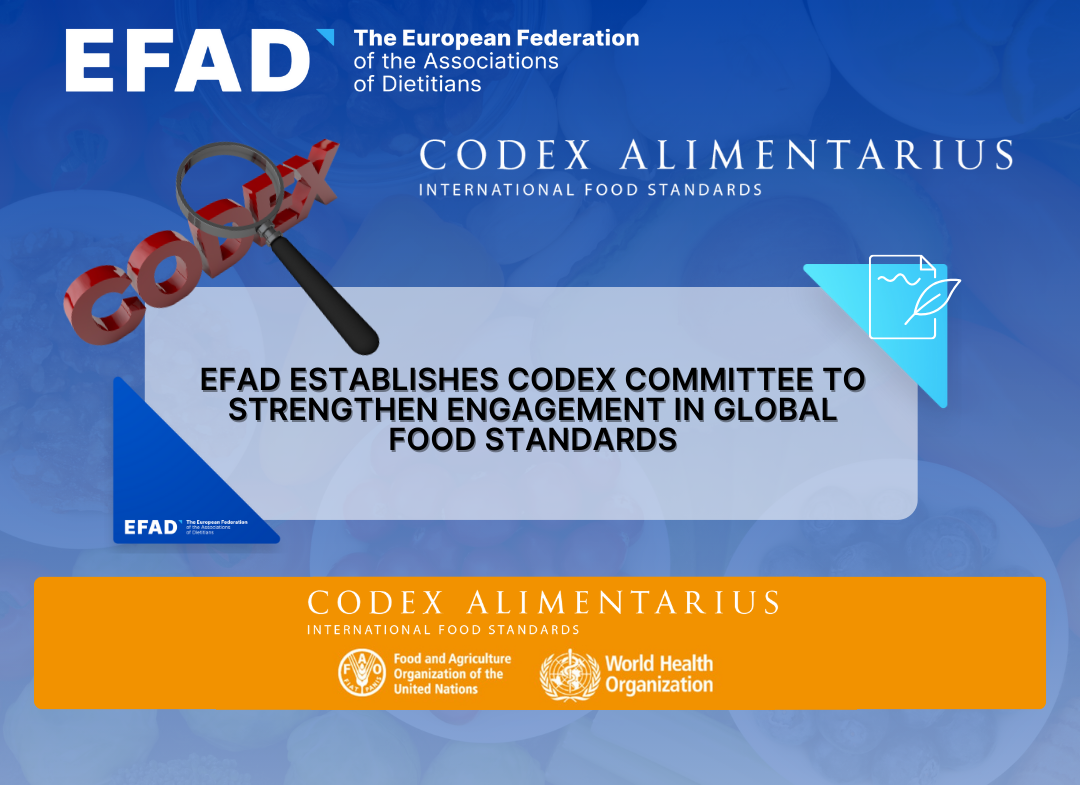
To ensure that EFAD as an observer member of the Codex Alimentarius can effectively contribute its knowledge, opinions, and expertise, the EFAD Codex Committee (ECC) was established. The first meeting was held on February 6 with all five committee members in attendance: Susanne Koch, Antonis Vlassopoulos, Elena Patra, Fionna Page, and Manuel Moñino as chair.
The members’ expertise includes food regulatory affairs, food labelling, food development, public health, consumer food information, nutrient profiling, supplements, and foods for special dietary use. The committee identified key Codex Alimentarius groups in which EFAD should be actively involved, focusing on Food Labelling (CCFL), Nutrition and Foods for Special Dietary Uses (CCNFSDU), Codex Alimentarius Commission (CAC), Europe Regional Committee (CCEURO) and Food Additives (CCFA). Additionally, commodity committees and the Methods of Analysis and Sampling Committee (CCMAS) will be monitored for relevant developments.
EFAD is currently participating in six electronic working groups (eWGs), with specific members assigned to each: Dietary Guidelines, Foods for older infants and young children, Nutrient Reference Values (NRVs) for ages 6–36 months, Food Labelling in Emergencies, Precautionary Allergen Labelling and Joint Presentation and Multipack Formats.
During the meeting, a new chapter regulating the Joint Scientific Organization Collaboration Group was also presented. This group includes AOAC, ILSI, NSF International, the Institute of Food Technologists, the American Society for Nutrition, and EFAD. Its goal is to bring independent, objective, and scientific expertise into the Codex forum, supporting the development of harmonized standards, codes of practice, and guidelines for the global Codex community.

